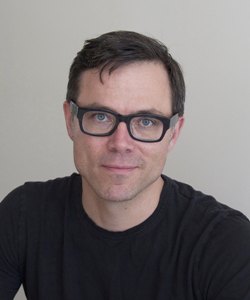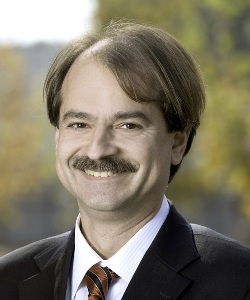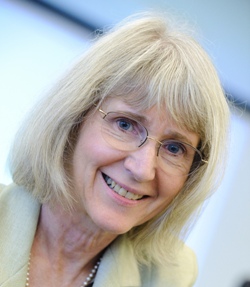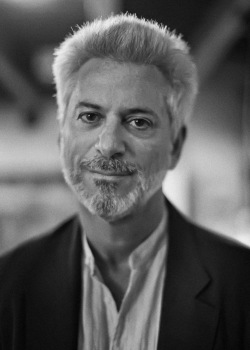Timothy Caulfield, LL.B., LL.M., is a Canada Research Chair in Health Law and Policy and a Professor in the Faculty of Law and the School of Public Health at the University of Alberta. He was the Research Director of the Health Law Institute at the University of Alberta from 1993 to 2011 and is now leading the Faculty of Law’s Health Law and Science Policy Group (HeaLS). Over the past several years he has been involved in a variety of interdisciplinary research endeavours that have allowed him to publish over 250 articles and book chapters. He is a Health Senior Scholar with the Alberta Heritage Foundation for Medical Research and the Principal Investigator for a number of large interdisciplinary projects that explore the ethical, legal and health policy issues associated with a range of topics, including stem cell research, genetics, patient safety, the prevention of chronic disease, obesity policy, the commercialization of research, complementary and alternative medicine and access to health care. Professor Caulfield is and has been involved with a number of national and international policy and research ethics committees, including Canadian Biotechnology Advisory Committee, Genome Canada’s Science Advisory Committee, and the Federal Panel on Research Ethics. He is a Fellow of the Royal Society of Canada and the Canadian Academy of Health Sciences and writes frequently for the popular press and is the author of The Cure for Everything: Untangling the Twisted Messages about Health, Fitness and Happiness. Mr. Caulfield has been recently awarded the Trudeau Fellowship by the Trudeau Foundation to further outstanding work dispelling healthy myths through evidence.
John P.A. Ioannidis, M.D., holds the C.F. Rehnborg Chair in Disease Prevention at Stanford University and is Professor of Medicine, Professor of Health Research and Policy, and Director of the Stanford Prevention Research Center at Stanford University School of Medicine, Professor of Statistics (by courtesy) at Stanford University School of Humanities and Sciences, member of the Stanford Cancer Center and of the Stanford Cardiovascular Institute, and affiliated faculty of the Woods Institute for the Environment. Dr. Ioannidis is a member of the executive board of the Human Genome Epidemiology Network, and senior advisor on knowledge integration at the National Cancer Institute, and has served as President of the Society for Research Synthesis Methodology, as a member of the editorial board of 30 leading international journals (including PLoS Medicine, Lancet, Annals of Internal Medicine, Journal of the National Cancer Institute, Science Translational Medicine, Molecular and Cellular Proteomics, AIDS, International Journal of Epidemiology, Journal of Clinical Epidemiology, Clinical Trials, Cancer Treatment Reviews, Open Medicine, and PLoS ONE, among others) and as Editor-in-Chief of the European Journal of Clinical Investigation for the period 2010-2014. He has given more than 300 invited and honorary lectures. He has received several awards, including the European Award for Excellence in Clinical Science for 2007, and has been inducted in the Association of American Physicians in 2009 and in the European Academy of Cancer Sciences in 2010. The PLoS Medicine paper on “Why most Published Research Findings are False,” has been the most-accessed article in the history of Public Library of Science. The Atlantic selected Ioannidis as the Brave Thinker scientist for 2010 claiming that he “may be one of the most influential scientists alive”. He considers himself privileged to have learnt and to continue to learn from interactions with students and young scientists (of all ages) from all over the world and to be constantly reminded that he knows close to nothing.
Eugenie C. Scott, Ph.D., is Executive Director of the National Center for Science Education, Inc., a not for profit membership organization of scientists, teachers, and others that works to improve the teaching of science as a way of knowing, the teaching of evolution, and the teaching of climate change. A former college professor, Dr. Scott lectures widely, and is called upon by the press and other media to explain science and evolution to the general public. Scott is the author of Evolution vs Creationism: An Introduction, co-editor (with Glenn Branch) of Not In Our Classrooms: Why Intelligent Design Is Wrong For Our Schools, and the author of many articles in science journals. She has served as President of the American Association of Physical Anthropologists, and has been honored by both scientists and educators in having been awarded the National Academy of Sciences Public Welfare Medal, the National Science Board Public Service Award, the AIBS Outstanding Service Award, the Geological Society of America Public Service Award, the AAAS Award for Scientific Freedom and Responsibility, the California Science Teachers Association Distinguished Service Award, and the National Association of Biology Teachers Honorary Membership award, “the association’s highest honor.” In 2009, Scientific American named her “one of 10 outstanding leaders involved in research, business or policy pursuits that have advanced science and technology.” She holds honorary D.Sc. degrees from McGill University, Ohio State University, Mt. Holyoke University, the University of Wisconsin-Milwaukee, Rutgers University, the University of New Mexico, Colorado College, and the University of Missouri, and was awarded the University Medal from the University of California-San Francisco.
Michael Specter has been a staff writer at The New Yorker since 1998. He writes often about science, technology, and global public health. Since joining the magazine, he has published articles about genetically engineered foods, AIDS, avian influenza, malaria, the world’s diminishing freshwater resources, synthetic biology, the attempt to create edible meat in a lab, the use of geoengineering to mitigate climate change, the power of the human microbiome and the meaning of the term “carbon footprint.” He has also published many Profiles, of subjects including Lance Armstrong, the ethicist Peter Singer, Richard Branson, Sean (P. Diddy) Combs, Manolo Blahnik, and Miuccia Prada, the PETA leader Ingrid Newkirk, and Dr. Mehmet Oz. Specter came to The New Yorker from the New York Times, where he had been the newspaper’s Senior Foreign Correspondent, based in Rome. From 1995 to 1998, Specter served as the Times Moscow bureau chief. He came to the Times from the Washington Post, where, from 1985 to 1991, he covered local news, before becoming the Post’s national science reporter and, later, the newspaper’s New York bureau chief. In 1996, Specter received the Overseas Press Club’s Citation for Excellence for his reporting of the war in Chechnya. He has twice won the Global Health Council’s annual Excellence in Media Award, first for his 2001 article about AIDS, “India’s Plague,” and secondly for his 2004 article “The Devastation,” about the ethics of testing H.I.V. vaccines in Africa. He also received the 2002 AAAS Science Journalism Award, for his article, “Rethinking the Brain,” on the scientific basis of how we learn. His book, Denialism: How Irrational Thinking Hinders Scientific Progress, Harms the Planet, and Threatens Our Lives, received the 2009 Robert P. Balles Annual Prize in Critical Thinking, presented by The Committee for Skeptical Inquiry. In 2011, Specter won the Overseas Press Club Citation for reporting that shows a concern for the human condition, as well as the World Health Organization’s Stop TB Partnership Annual Award for Excellence in Reporting for his New Yorker article, “A Deadly Misdiagnosis,” about the dangers of inaccurate TB tests in India, which has the highest rate of TB in the world.







